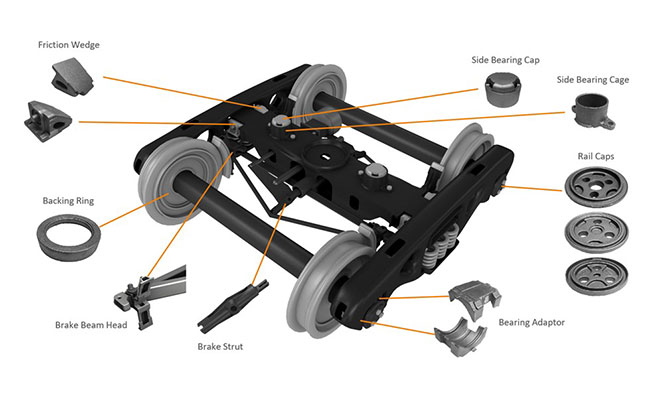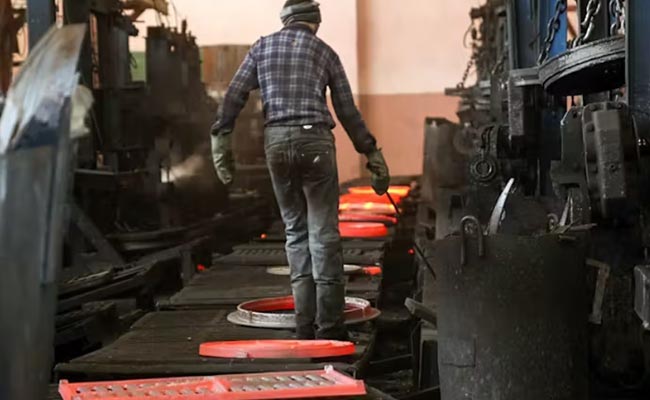
Application of casting in automotive industry
2025-01-06
Applications of Casting in the Agricultural Industry
2025-01-21Steel castings play a crucial role in the railway industry, providing essential components for locomotives, freight cars, and passenger coaches. Here are some of the key applications of steel castings in the railway industry:
Locomotive Components:
Engine Blocks: Steel castings are used to create robust and durable engine blocks that house the locomotive’s internal combustion engine.
Frames: The locomotive’s main frame, which supports all other components, is often made of steel castings.
Bogies: The bogies, which carry the weight of the locomotive and provide support for the wheels, are made up of various steel castings, including side frames, bolsters, and center plates.
Freight Car Components:
Side Frames and Bolsters: These components form the structural backbone of freight cars, providing support for the car body and load.
Couplers: Steel castings are used to manufacture couplers, which connect freight cars together to form trains.
Yokes and Knuckles: These components are integral to the coupling mechanism and are typically made of steel castings.
Passenger Coach Components:
Bogies: Similar to locomotive bogies, passenger coach bogies are made up of steel castings, ensuring smooth and reliable operation.
Body Frames: The structural framework of passenger coaches often incorporates steel castings for strength and durability.
Why Steel Castings are Ideal for the Railway Industry:
High Strength and Durability: Steel castings can withstand the immense stresses and vibrations experienced in railway operations.
Complex Shapes: The casting process allows for the production of intricate and complex shapes, which are essential for many railway components.
Cost-Effective: Steel castings can be a cost-effective solution for producing large quantities of railway components.
Material Versatility: A wide range of steel alloys can be used to tailor the properties of the casting to specific railway applications.
By utilizing steel castings, the railway industry can ensure the safety, reliability, and efficiency of its operations.




